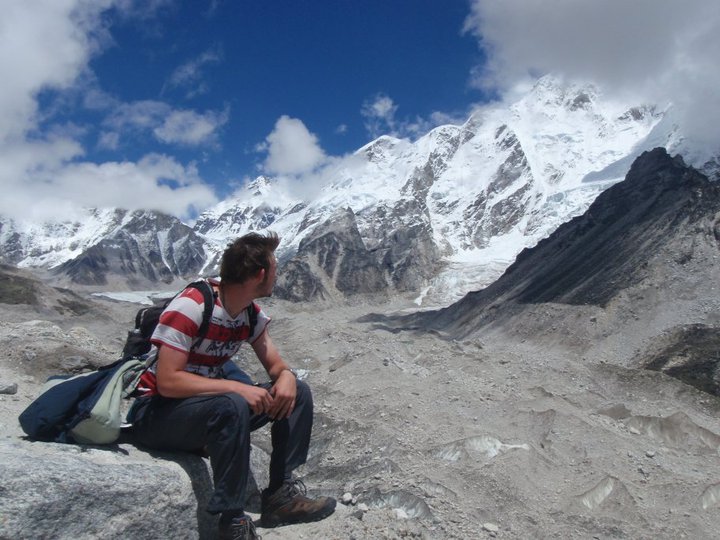Today, we are talking with Christopher Kingshott, the head of CIS Gorki Campus, about his extensive travel experience and how exploring the world helps in leadership, education and life.
How many countries have you visited so far? Can you share some of your most memorable travel destinations or moments?
- I’ve visited 124 countries. A few experiences stand out. Hiking to Everest Base Camp in Nepal taught me about humility and perseverance. The silence and wildlife in Antarctica were a powerful reminder of our planet's fragility. And walking 4,000 miles across the United States was a lesson in long-term goal setting and the kindness of strangers.
Do you have favourite cuisines or dishes?
- I’ve developed a real love for spicy food, particularly Indian and Mexican. Indian cuisine offers a sense of comfort and familiarity from home, while my love for authentic Mexican street tacos is tied directly to the vibrant experience of being there.
Have you already planned your next journeys? What are they?
- Yes. I'm planning a warm Christmas to break tradition. In May, I'll take my son to Japan, where I used to live. This summer, I hope to explore the US East Coast from New York to Miami, and of course, I'll be visiting family in England.
Why is travelling important or exciting for you?
- It comes from the belief that life is short and the world is vast. Travel is the best education because the most profound lessons come from interacting with people from different walks of life. It’s about collecting those unique experiences that continuously reshape your perspective.
How has immersing yourself in diverse cultures during your travels influenced your approach to work?
- It has fundamentally shaped my leadership. The biggest lesson is that the world is a fundamentally caring place. This provides immense perspective, reminding me that many challenges are surmountable. It translates to my work by reinforcing that communication and empathy are the keys to solving most problems collaboratively.
Could you describe a challenging travel experience that taught you resilience, and how you apply that lesson?
- Once, in the Mojave Desert, I misjudged my water supply and faced a severe survival situation. On another occasion, on Mount Elbrus, I was caught in a storm and had to be assisted down, a tragic day where others perished. These experiences taught me that resilience is about mental fortitude—staying calm under pressure, assessing options rationally, and knowing when to accept help. I apply this by remaining level-headed during crises and trusting in my and my team's ability to navigate hardship.
Have you ever paid attention to different educational systems abroad? What insights did you obtain?
- Yes. A key insight is the distinction between the quantity of education and its quality. I've seen systems that excel at connecting learning to real-life problems and holistic student development. This has made me intensely aware of the need for balance in our school, ensuring rigorous academics are paired with real-world relevance and time for extracurriculars.
What daily habits, inspired by your travels, do you maintain to promote work-life balance?
- I focus on two principles. First, disciplined consistency, inspired by cultures like Japan and the Sherpas in Nepal. I apply this by protecting time for focused work and equally for rest. Second, I prioritize physical well-being, having seen the effects of poor health in some countries. Mindful eating and exercise are non-negotiable for maintaining the energy required to lead effectively.
Can you recount a travel story that highlighted the importance of adaptability or knowing foreign languages?
- Certainly. Before Google Translate, my friendly gestures towards a family in a remote village were misinterpreted as a marriage proposal, leading to an awkward engagement party! In a separate incident, my dead phone and lack of local language skills left me lost and sleeping on the street. Both stories highlight that language is crucial for clear cultural understanding and basic safety, proving that even a few phrases are invaluable.
Would you encourage students and teachers to travel more? Why or why not?
- Definitely. I encourage it to show that the world is far safer and more accessible than perceived. The key is to travel deeply—to step outside your comfort zone, engage with locals, and move beyond organized tours. The resilience, perspective, and empathy gained are irreplaceable life lessons.
How to make travelling not only fun but also educational?
- The shift happens through intentionality. Prioritize communication, listening, and a positive attitude. The deepest learning comes from people, so seeking genuine interactions—whether with a homestay family or a conversation in a market—turns a fun trip into an educational journey that challenges your worldview.




